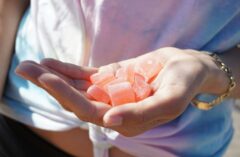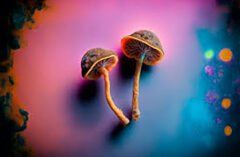Table of Contents
Last Updated on August 1, 2023 by Team Spinfuel

Did you know that alcohol is the world’s third-largest risk factor for disease? It contributes to 5.1% of the global disease burden, with an estimated 3 million deaths yearly. Nine percent of the deaths in the 15–29-year group were alcohol-related. Liquor consumption is a leisure or social activity for most adults. But increasing access to it among undergraduates leads to inconsistent patterns. Research paper articles show its educational effects, including the inability to manage academic responsibilities. Furthermore, binge drinking leads to negative health implications. Our article will explore the effects of alcohol on academic performance.
Factors Contributing to the Development of Adolescent Alcoholism
It is normal for parents and guardians to worry about their kids drinking booze. Therefore, the first thing to do is identify the factors responsible for adolescent alcoholism. There are several ways to do it. One is by writing or undertaking extensive research on the subject. Studying this topic provides a broad understanding of the causes. The writer or reader can use resources to learn warning signs and effective ways to deal with the problem. Students may familiarize themselves with free essay examples on alcoholism at https://studydriver.com/alcoholism-essay/ if they want to delve into the delicate issue. The research papers form extra materials, as the sample touches on diff aspects. These include alcoholism in teens, addiction, and more.
The adolescent years are a complicated time in a young person’s life. From physical and hormonal changes to emotional alterations, students attempt to assert independence. One such is trying booze, whether due to curiosity or rebellion. Either way, when you understand the factors responsible, planning countermeasures becomes easy. The following factors may influence teenage drinking alcoholic beverages in school or at home:
- Genetic disposition or biological factors.
- Peer pressure.
- No parental supervision, family conflict, or poor communication.
- Psychological factors like depression, anxiety, or traumatic experience.
- Early initiation.
- Easy accessibility.
- Media advertisements.
- Academic stress and school policies on substance use.
- Cultural factors and socioeconomic status.
The Impact of Alcohol Abuse on Academic Performance
Booze alters a teenager’s academic journey in various ways. The popular effects on school and home life of alcohol are:
Alcohol Use on Academic Achievement
Young adults are more likely to binge drink and develop problems than their older counterparts. Their brain’s pleasure center matures before they can make sound judgments. Students experience pleasure before determining when and how much to drink. Abuse leads to declining academic activities, as undergraduates may struggle to work. Furthermore, they skip classes or the entire school day. They miss lectures and learning opportunities, which reflects in their performance.

Drinking Affects the Brain
Booze impairs cognitive functions such as concentration and attention. As a result, kids who abuse it find it challenging to focus on class. It further reduces memory function, making retaining and recalling information hard. Over time, the difficulty in completing academic tasks leads to poor performance.
It Breeds Risky Behaviors
Excessive youth alcohol usage is linked to bullying, anger, fighting, or stealing. Liquor affects a teen’s mood and personality. Hence, it sometimes triggers PTSD, depression, anxiety, or suicidal thoughts. Others include driving under the influence and having unprotected sex. All these may result in injuries or legal issues that disrupt academic progress.
Health and Relationship Problems
Alcohol abuse leads to various mental and physical health issues. For example, liver damage, intoxication, sleep disturbance, and more. Problematic teens run into issues with peers, family members, and professors. They face probation, suspension, or other consequences that affect academic performance.
Recognizing Warning Signs and Seeking Support
Teens are not the best communicators. As a result, it is up to you to pay attention to subtle signs that show liquor abuse. They include:
- Increased irritability, mood swings, aggression, and similar behaviors.
- Increased absenteeism or a sudden drop in academic performance.
- Neglecting responsibilities at home or school.
- Changes in social circles
- Unsteady gait, slurred speech, bloodshot eyes, and similar physical changes.
- Secretive behaviors and defensive stances when questioned.
- It’s the smell or evidence.
- No concern for grooming and personal hygiene.
- Insomnia or excessive sleeping.
- Withdrawal from hobbies or extracurriculars.
If you suspect your child is struggling with drinking, sit them down and talk. Communication is the first step. However, you must do it in a supportive way without being judgmental. If possible, involve the family and seek professional help. Likewise, encourage kids to seek help from friends and avoid an enabling atmosphere. Explore various treatment options together and track progress.
Ways to Prevent Teenage Alcoholism
Prevention is always better than cure. Take these measures to protect students from booze:
- Use a research paper about alcoholism or essays to educate them on alcohol risks and consequences.
- Maintain open communication with teenagers.
- Be a positive role model and set clear expectations for alcohol use.
- Set rules and explain the consequences.
- Help undergraduates develop coping mechanisms for managing emotions without using liquor.
- Encourage participation in extracurricular activities.
- Limit access to booze and enforce underage drinking laws.
- Seek professional help early.
The Role of the School in Preventive Action
Like parents, schools play a vital role in preventing liquor abuse. Some preventive actions institutions can adopt are:
- Early identification of at-risk students by counselors and referral to intervention services.
- Evidence-based substance abuse education and awareness programs.
- Parental involvement via workshops and resources.
- Creating a positive school environment that decreases using alcohol as a coping mechanism.
- Enforcing substance-free policies.
Combating Underage Drinking in Schools
Parenting an adolescent is not easy. It is even worse when the child has problems with alcohol. Students have various reasons for drinking beverages. Unlike some adults, they don’t always know when they’ve had enough. Likewise, the effects of alcohol on students are detrimental. As a result, prevention requires collaboration between parents, schools, and professionals. Start at home or school by creating an environment that discourages usage. Check on teenagers, including their friends, parents, and teachers. Discuss underlying issues, lay down rules, and encourage interest in social activities. If you cannot handle it alone, get help to tackle alcohol effects on learning. With proper guidance, youth will learn to resist underage drinking.








